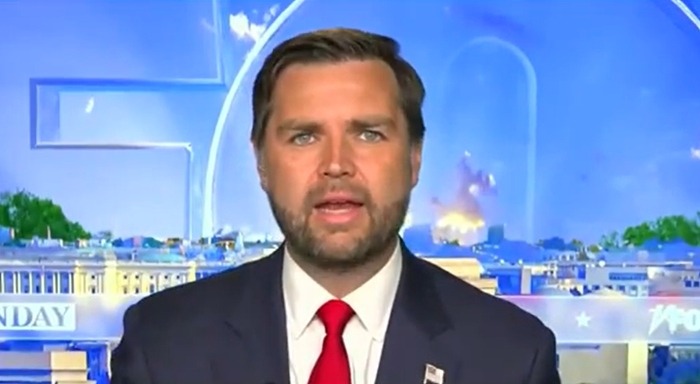Republican vice presidential nominee Sen. J.D. Vance (R-Ohio) made headlines following Tuesday night’s CBS News Vice Presidential Debate by supporting his claims on immigration and housing costs with concrete data. During the debate, Vance argued that increased immigration has contributed to rising housing costs in the U.S., a statement that CBS moderators Margaret Brennan and Norah O’Donnell sought to challenge with an on-air “fact check.”
Vance was quick to address the moderators’ objections. Similar to the earlier ABC-hosted vice presidential debate featuring former President Donald Trump and Vice President Kamala Harris, this debate was marked by contentious interruptions and fact-checks that were primarily directed at the Republican candidate. However, after the debate ended, Vance fulfilled a promise he made on stage by providing evidence to counter the moderators’ assertions.
On the X platform, Vance shared direct quotes and studies to support his claim that immigration impacts housing costs. He cited Federal Reserve member’s speech, tweeting: “Here is Michelle Bowman of the Federal Reserve Board of Governors: ‘Given the current low inventory of affordable housing, the inflow of new immigrants to some geographic areas could result in upward pressure on rents.’”
Bowman’s statement, delivered at the Massachusetts Bankers Association Annual Convention in May 2024, supports Vance’s argument that immigration is putting further strain on the U.S. housing market, especially in regions that are already experiencing housing shortages.
The Trump running mate went a step further, however, and posted another couple of studies that backed up his on-stage claim:
Here are two more studies to go with it:
“Immigration inflows into a particular Metropolitan statistical area (MSA) is associated with increases in rents and with house prices in that MSA while also seeming to drive up rents and prices in neighboring MSAs.”…
— JD Vance (@JDVance) October 2, 2024
One study, published in the Journal of Housing Economics, concluded that “immigration inflows into a particular Metropolitan Statistical Area (MSA) is associated with increases in rents and with house prices in that MSA.” Another report from the Congressional Budget Office (CBO) echoed similar sentiments, finding that “increases in immigration raise state and local governments’ spending—particularly on education, health care, and housing—more than their revenues.”
The first study, published in the Journal of Housing Economics, revealed that immigration inflows into specific Metropolitan Statistical Areas (MSAs) are directly linked to increases in both rents and housing prices. The study also pointed out that these increases frequently extend to neighboring areas, creating a broader regional impact on the housing market. The researchers contended that immigration generates new demand for housing, which drives up costs, particularly in regions with a limited housing supply.
Additionally, the Congressional Budget Office (CBO) released a report outlining the fiscal impact of immigration. It found that increased immigration results in greater spending by state and local governments than the corresponding increase in revenues, particularly in areas such as education, healthcare, and housing. The report indicates that while immigration can bring certain economic benefits, it also imposes additional costs on local housing markets, putting a strain on resources in areas with already high demand.
These findings were sufficient to support Vance’s statement, despite the CBS moderators’ attempts to challenge it. The broader debate, however, underscored an ongoing frustration among Republicans who perceive a bias in moderation favoring Democratic candidates. Throughout the debate, Vance encountered repeated interruptions, while his opponent, Democratic nominee Tim Walz (D-MN), appeared to face far fewer challenges.



